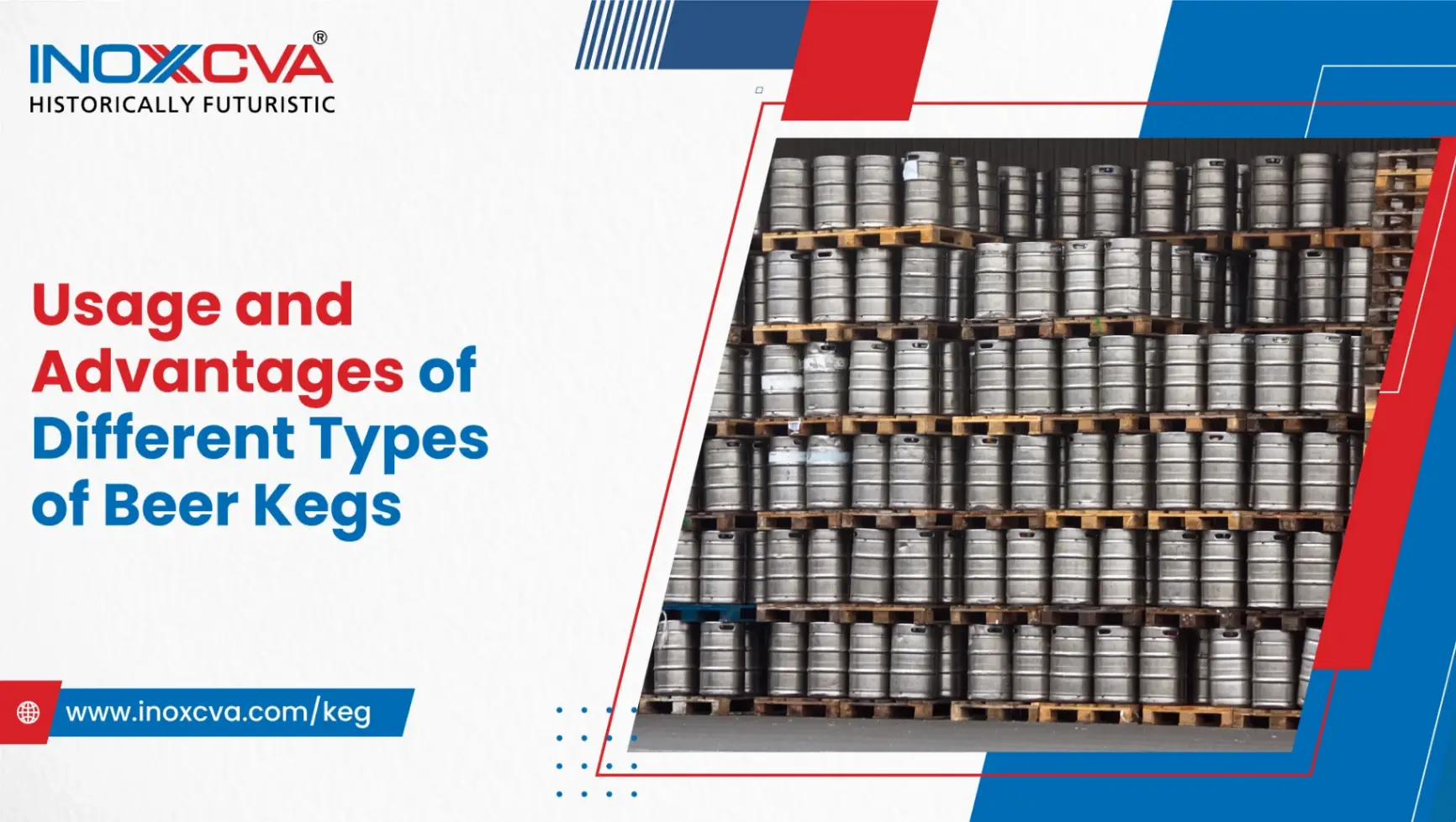
Take a Detailed Look At the Usage and Advantages of Different Types of Beer Kegs
Kegs play an important role in the beer industry and should play an important role in the beverage industry in general as well. They can be one-way kegs made out of plastic or returnable stainless steel kegs. They are used to transport and dispense beer and come with a variety of shapes and capacities, but they all serve the same purpose: to transport, store and dispense beer quickly and efficiently.
Kegs are a vital component of the beer industry. They provide an efficient and cost effective way to store and transport beer for bars, pubs, breweries and other establishments. Kegs come in many different sizes, shapes and materials depending on their intended use. They are also easy to operate and require minimal maintenance. With the advent of new technologies, kegs can become more sophisticated than ever before allowing breweries to monitor them remotely.
The size of kegs used in the beer industry have a huge impact on the cost, convenience and efficiency of dispensing beer. Kegs come in a wide range of sizes, from miniature 1-gallon party kegs to full-size 15.5 gallon kegs used for commercial purposes, and from 5L to 50L. Each size has its own purpose and advantages, depending on the type of beer being served and its consumption and the size of the event. This article will explore the different keg sizes available and discuss their various uses in the beer industry.
Sixth Barrel Kegs
Also known as Sixtel Kegs, 5.16 gallons (19.8L), they are a growing trend in the craft beer industry in the United States. These small-sized kegs offer a variety of benefits to both brewers and consumers alike. They are extremely cost-effective when it comes to packaging and storage, as well as being easier to handle than full-size kegs. Since the space at the bar is limited, the smaller size allows a broader selection of beers and ensures their freshness. Furthermore, their easy portability makes them ideal for retailers looking for an easy way to get their customers’ favorite beers in their store. Sixtel Kegs have become a popular choice for many breweries looking for an efficient and economical way of distributing their products.
They are part of what is known as ‘slim kegs’ because of their smaller diameter. The smaller diameter allows the keg to have the same height of the half barrel, which allows mix loads with half barrels.
The standard neck/ferrule for this keg is known as Draft Neck which fits the so called Draft Spear (type D).
Quarter Barrel Kegs
Quarter barrel kegs are a type of beer keg used to store and serve beer. It is a cylindrical container made of stainless steel and has a capacity of 7.81 gallons (29.56L). Quarter Barrels offer an intermediate size in between the sixth barrel and the half barrel. In those locations where the Sixth barrels are too small and the Half barrel too large, the Quarter barrel is the right solution, it is sort of a hybrid version.
The Quarter barrels come in two versions, the Squad (same diameter as the Half barrel but shorter), and the Slim (smaller diameter so that the height is the same as the Half barrel).
The standard neck/ferrule for this keg is known as Draft Neck which fits the so-called Draft Spear (type D).
Also known as full-size kegs with 15.5 gallons (59.43L), these kegs have been a standard in the beer industry for several decades already. They offer the most economical and efficient way to store and distribute beer in large volumes. As craft breweries continue to grow in popularity, more and more businesses in the United States are turning to Half Barrel Kegs as a cost-effective way to sell their product in venues with large consumption.
The standard neck/ferrule for this keg is known as Draft Neck which fits the so-called Draft Spear (type D).
Outside the United States, the EuroNorm designs are the most broadly used worldwide. Their capacity ranges from 20L to 30L to 50L and have an external diameter of 395mm, which can be considered an advantage for the breweries since the filling lines can handle all sizes by simply adjusting the filling heads, while the conveyors remain the same.
While these kegs can be built with various neck types, the 2” x 14 TPI neck is the most standard type which can be used with multiple valve types.
Next to the EuroNorm design, DIN kegs are also popular in countries like Germany and over time they have been exported to other countries where German brewmasters settled. Similar to the Euro kegs, their capacity ranges from 20L to 30L to 50L and have an external diameter of 365mm.
Same as with the Euro kegs, these kegs are normally built with the 2” x 14 TPI neck which can be used as well with multiple valve types.Cornelius Keg designs differ from the rest of the kegs in that they allow easy access to the interior of the keg through a large oval opening on the top of the keg. They are normally used by microbreweries and homebrewers to store, transport and dispense their beers.
These kegs are designed to perform manual washing and filling processes.
For quite some time, INOXCVA has been a leading provider of corny beer kegs with top quality and affordability for very small operations. With sustainability in mind by means of offering returnable containers instead of one-way, INOXCVA has taken the necessary actions to expand its portfolio to offer all the beverage keg types demanded in the market.
Whether you're looking for a commercial-grade keg for your business, regardless of the size of your operation, INOXCVA has options that will suit your needs.
